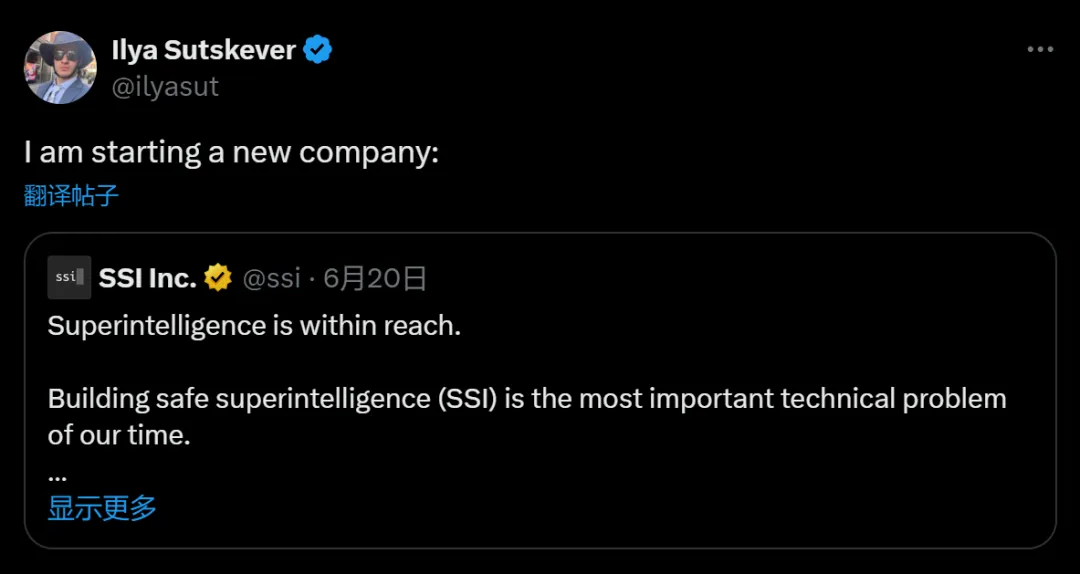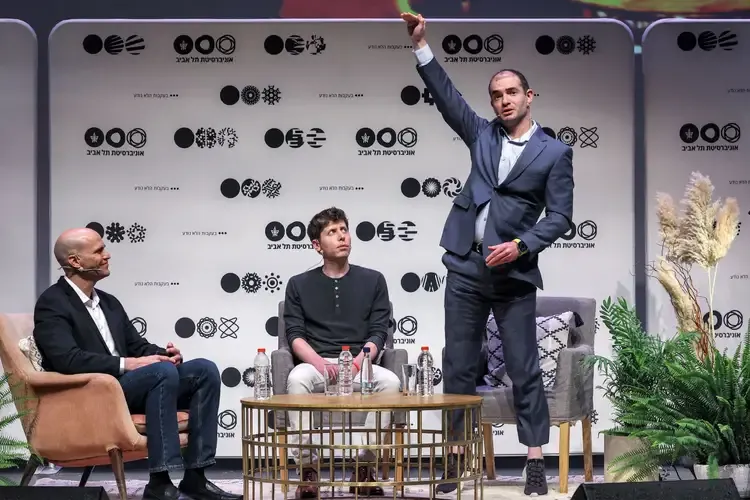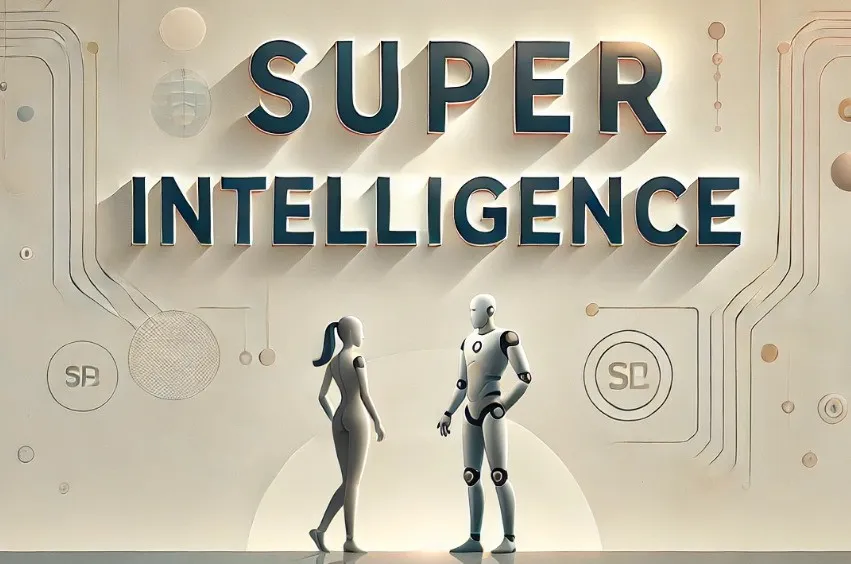There's been significant news in the field of artificial intelligence lately. Ilya Sutskever, the original chief scientist of OpenAI, has stepped out to start his own business. A doctoral student of Geoffrey Hinton, the father of artificial intelligence, Ilya has founded a company called Safe Superintelligence, aiming to tackle the safety concerns surrounding AI.

Why did Ilya decide to launch such a company now? It has to do with his philosophy.
In a video interview, Geoffrey Hinton mentioned that when Ilya was his student, they had differing concepts. Hinton believed that the development of AI required breakthroughs in models, structures, and frameworks. However, Ilya foresaw that focusing on ramping up computation could solve problems, rather than altering model structures. This foresight is quite remarkable.
Hinton freely admits today that he was initially wrong and that Ilya was right. This shift towards emphasizing large models and computational power, which led to the development of GPT at OpenAI, is largely attributable to Ilya's influence. He advocates for scale, believing that quantitative changes lead to qualitative changes, and that scale brings emergence.
Now, one might ask whether scaling will continue to grow indefinitely, leading to greater emergent capabilities. Current trends suggest that emergent properties have already begun to manifest, and future advancements might elevate AI to higher levels, approaching superintelligence.
Theoretically, superintelligence is bound to emerge. There are two routes: one is AGI (Artificial General Intelligence), an AI that can do everything a human can; the other is Superintelligence, an AI that surpasses human capabilities in specific domains.
Nevertheless, when we consider superintelligence, we don't necessarily mean it will be superior to humans in every aspect, but rather it will excel in certain areas or tasks.
The enhancement of intelligence within specific domains is a crucial focus for future AI development, referred to as domain intelligence.
For example, autonomous driving represents a form of visual intelligence. Additionally, OpenAI's recently released GPT-4 emphasizes understanding both the semantics and underlying emotions in voice interactions, adapting its responses accordingly.
Hence, we define domain intelligence as intelligence specific to a domain. As each domain intelligence emerges, it can evolve into superintelligence within that domain. For instance, AlphaGo represents domain intelligence in Go, having already surpassed the best human players.
Ilya's concern is that the rapid scaling will soon lead to AI surpassing human intelligence, making safety a critical issue.

However, this anxiety might be premature. Dominance within a specific domain doesn't necessarily pose an overall threat to humanity. The holistic integration of human abilities is vital. For AI to pose a genuine threat, it must integrate domain intelligences to form social intelligence.
This means that artificial intelligence would need to function not just as independent entities, but as a collective capable of group decision-making and action. Each AI unit would have domain-specific intelligence, and their collective intelligence could potentially surpass human capabilities on a societal level, which would be truly concerning.
Currently, group intelligence in AI is in its infancy.
At least, AIs have developed a common language, known as tokens, for communication, unlike human languages that vary widely. All AIs use tokens, regardless of the language they operate in.
However, their social behaviors are still rudimentary, and socialized intelligence and group intelligences remain relatively basic.
In summary, Ilya is right about the eventual emergence of superintelligence, but it will likely be domain-specific initially.
The possibility of AI surpassing human capabilities across all fields exists, but this scenario remains distant due to limited progress in unified group intelligence.
Ilya's vision is quite forward-thinking, drawing partly from his previous successes. Successful individuals often replicate their successful strategies, and he firmly believes in the power of scale. Yet, AI is still predominantly in a performance-tuning phase and has not reached general intelligence.

Consider NVIDIA's market capitalization surpassing $3 trillion, driven by Jen-Hsun Huang's early vision and significant investment in future potential.
**Foreseeing future trends and making early bets is often a key to success. Whether Ilya's current venture will pay off remains to be seen, but his courage to stake a claim on the future is commendable and worthy of emulation."